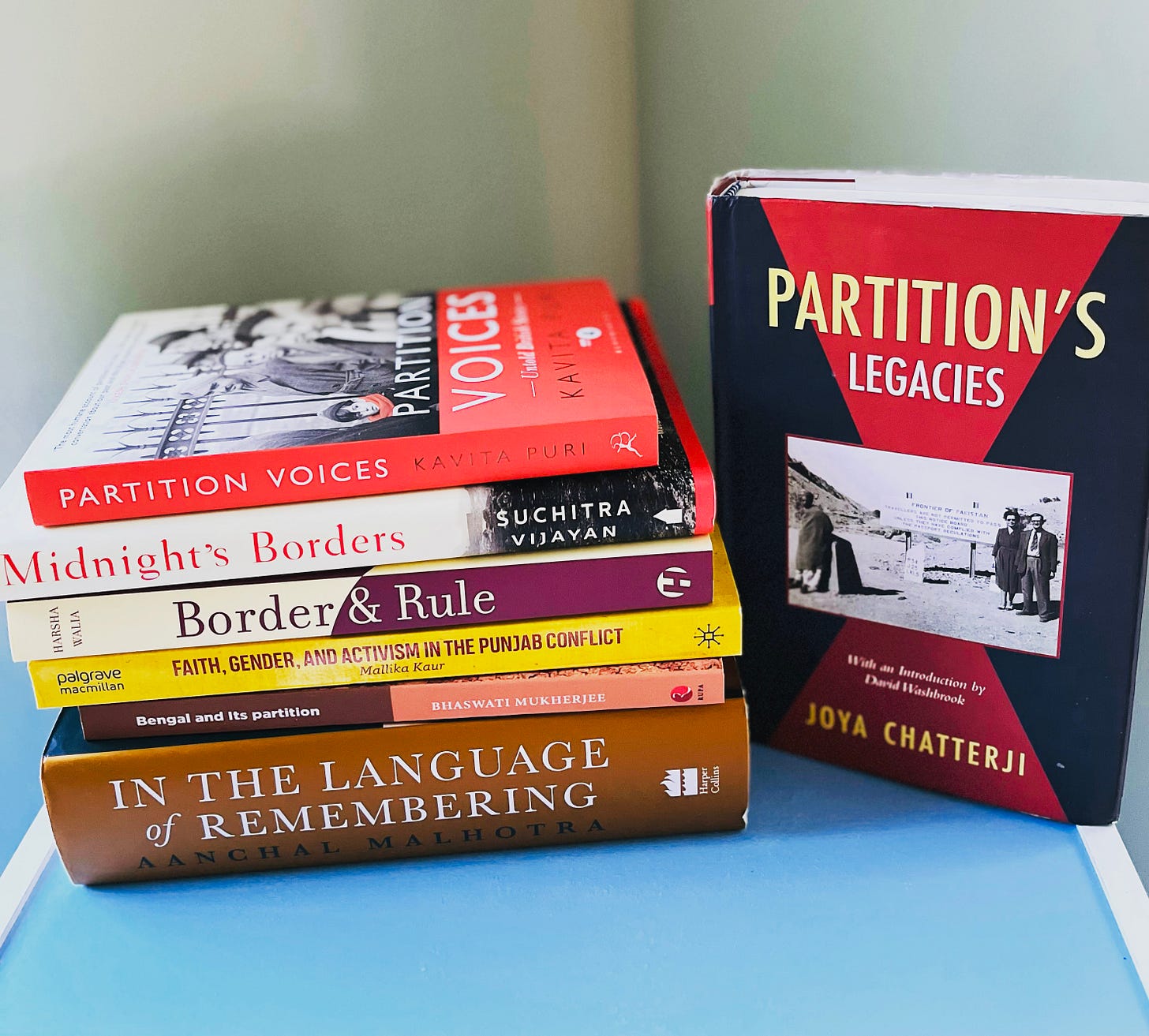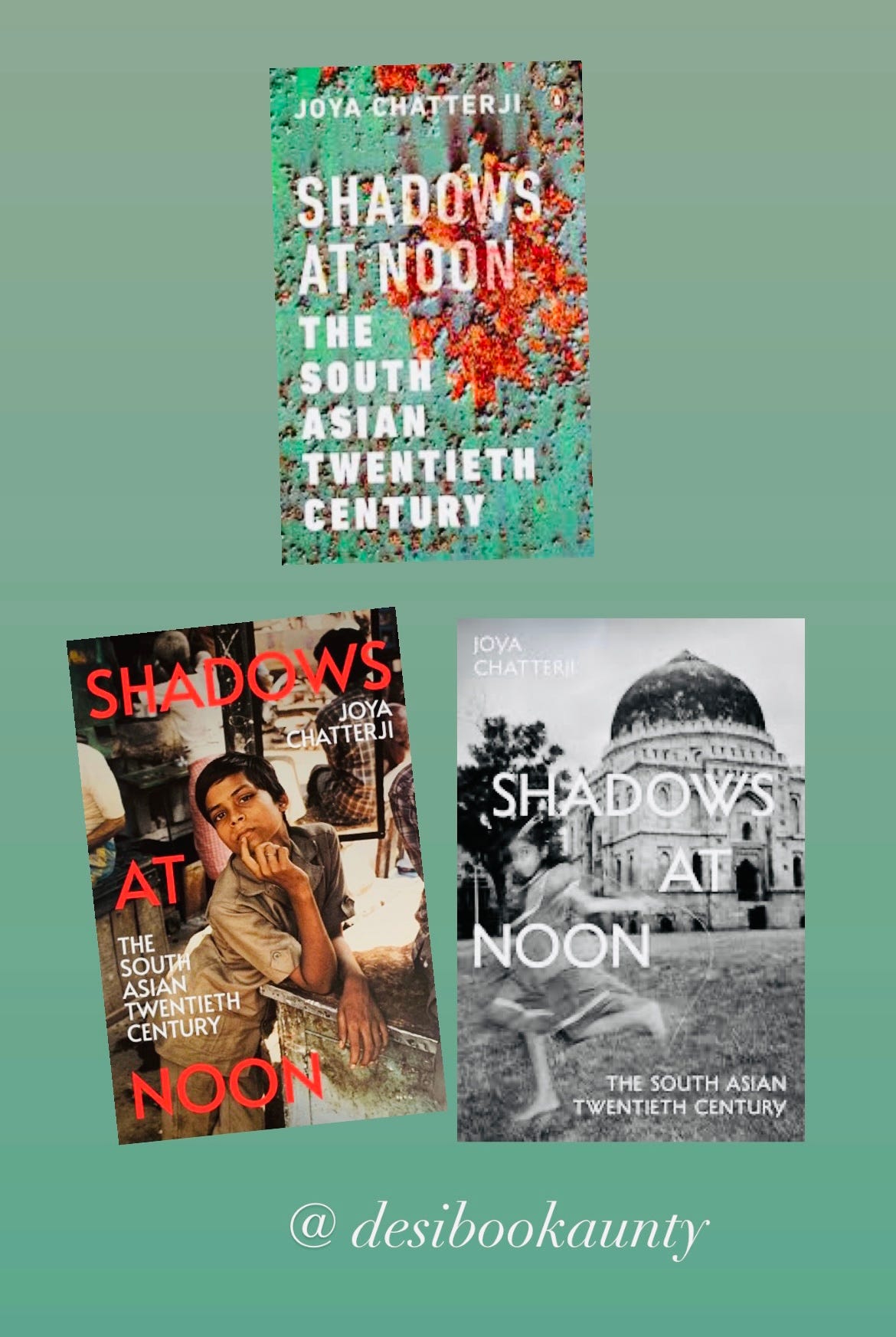Beloved community,
As #partition1947 remembrance days approach during peak fascist times on the subcontinent, I’m seeking ways to emphasize our ongoing interconnectedness as South Asians of multiple nations, castes, faiths & languages.
August 14-15th, 1947 mark what’s known as partition in South Asian history. This is a key historical set of events impacting my family & ancestry in profound ways we are still grasping.
As I repeatedly say:
Partition is now. It isn’t in the past.
We are kin.
Are you seeking reads/ resources to learn/ teach about partition?
There is so much to learn & unlearn. So many of us were not taught about this complex history as we grew up separated by trauma, distance, language or colonial education from these ongoing intergenerational peoples’ stories. It’s time to heal the ongoing ramifications of partition. Remembering our interconnectedness & mutuality throughout time might build needed solidarity.
This is a #partition study #bookstack
#nonfictionbooks for adult readers I’ve curated. These reads either offer specific information related to partitions of Bengal & Punjab or general perspectives on borders.
Also, visit our #partition75teachin from last year ~ follow the hashtag & my substack posts from last year for resources & conversations.
I’m learning that centering Bangla, Kashmiri, Sindhi, Sikh, multi-faith kin in our history retellings might rectify some of the multitudes of erasures & misunderstandings in dominant narratives about 1947 partition.
Inquiry: In the spirit of ancestral remembrance, how do you say “partition” in your mother’s mother tongue?
Invitation: Initiate a conversation about this history with your family, connections & co-learners.
I found a new book that centers & illuminates ways we share history as well as how political propaganda & colonial structures continue to partition us.
Shadows at Noon:
The South Asian Twentieth Century
by Joya Chatterji
Yale University Press (November 21, 2023) #preorder
*it is already available globally from Penguin India
How we heal our separations to build solidarity across these colonial borders & divisions, remains our collective #southasiansolidarity work.
I’m eagerly awaiting my copy with immense hope that it is a resource for learning & teaching #southasianhistory through collaborative lenses.
Book description:
A groundbreaking view of South Asian history in the twentieth century that underlines the similarities and intertwined cultures of India and Pakistan
This radically original and ambitious history of the Indian subcontinent explores the region’s unique twentieth-century history and foregrounds the deep connections, rather than the well-publicized fissures, between the cultures of India and Pakistan.
Taking the partitions of British India rather than the two world wars as the century’s inflection points, Joya Chatterji examines how issues of nationalism, internal and external migration, and technological innovation contributed to South Asia’s tumultuous twentieth century. Chatterji weaves together elements of her autobiography and family history; stories of such legendary figures as Tagore, Jinnah, Gandhi, and Nehru; and, in particular, the accounts of the many who were left behind and marginalized in relentless nation-building projects.
#southasia #southasianstudies #educatorresource #partition
Partition is now; it isn’t in the past.
We are kin.
How we heal our separations to build solidarity across these colonial borders & divisions, remains our collective #southasiansolidarity work.
I’m eagerly awaiting my copy with immense hope that it is a resource for learning & teaching #southasianhistory through collaborative lenses.
To read more about this book:
“Shadows at Noon: The South Asian Century” by Joya Chatterji - review by Soni Wadhwa
asianreviewofbooks.com
I’m sharing this information in the earnest hopes that the book & this information might spark brave & healing conversations & learning in our communities.
In solidarity,
Desi book aunty





